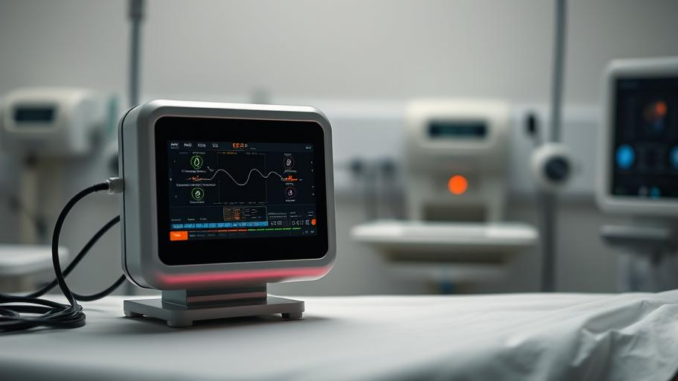
Summary
Medtronic’s Pipeline Vantage Embolization Device, used to treat brain aneurysms, has been recalled due to a potential defect causing serious health risks, including death. The recall encompasses two models: the 027 is removed from the market due to links to 17 injuries and four deaths, while the 021 remains available with updated instructions. This incident raises concerns about pre-market testing procedures for medical devices.
Safeguard patient information with TrueNASs self-healing data technology.
** Main Story**
Alright, let’s talk about this Medtronic recall – it’s pretty serious stuff. The FDA just announced a Class I recall on their Pipeline Vantage Embolization Device with Shield Technology. You know, the one used to treat brain aneurysms? It’s not good.
Essentially, this device is supposed to insert a braided tube into blood vessels, cutting off blood flow to the aneurysm. Sounds straightforward enough, right? Well, it seems the flexible tube can detach or just fail to attach properly. And when that happens, things can get really complicated, really fast.
Recall Breakdown: What You Need to Know
Specifically, the recall hits two models: the 027 and the 021. Now, here’s where it gets particularly concerning. The FDA’s actually pulled all 027 devices off the market. Why? Because they’ve been linked to 13 injuries and, tragically, four deaths. It’s a stark reminder of the risks involved when medical devices don’t perform as expected.
And get this, by late 2024, Medtronic had already racked up 416 complaints related to around 18,200 of these 027 units floating around the world. The 021 model, on the other hand, is still on the market, although it now comes with updated instructions. This model’s been connected to four injuries, thankfully no deaths, but still cause for concern. It leaves physicians in a tricky spot, they need to carefully weigh the risks and benefits for patients who’ve already been treated with these devices. Maybe that means tweaking medical management, scheduling more follow-up imaging—it’s all a bit of a headache, to be honest.
Oh, and one more thing to keep in mind: younger women, especially those under 45, appear to be at higher risk for complications with these devices. It’s something doctors really need to be aware of when considering treatment options. You know, it reminds me of a case I heard about last year, where a similar device malfunctioned, and it took months to figure out what went wrong. It’s a stark reminder that even with the best technology, things can still go sideways.
Are Approval Processes Too Lax?
All this raises some pretty big questions, doesn’t it? Specifically, this recall is throwing a spotlight on the 510(k) clearance pathway, which is how a lot of medical devices get approved. Basically, manufacturers can introduce new devices by showing they’re “substantially equivalent” to something that’s already out there. While it can speed things up and encourage innovation, it also means skipping the rigorous, independent testing you’d expect before a device hits the market.
Critics are saying, and maybe rightly so, that this is a loophole that can compromise patient safety. Should we have stricter pre-market evaluations? It’s a debate worth having. After all, we’re talking about people’s lives here, balancing the need for new tech with the absolute necessity of ensuring it’s safe. It kind of highlights the constant push and pull between getting new medical breakthroughs out there quickly and making absolutely certain they won’t cause harm.
Look, the FDA’s response – the Class I recall and the updated instructions – that shows they are serious about protecting public health. But it all underscores the importance of staying vigilant and always looking for ways to improve how we evaluate these devices. And, as of today, March 27, 2025, that’s the latest, but things could change, so keep an eye out for more updates from Medtronic and the FDA. The Medtronic situation really makes you think though, doesn’t it? How do we strike that balance? It’s a tough one, and honestly, I don’t have all the answers, but it’s a conversation we need to keep having.


Yikes, 416 complaints before a full recall of the 027 model? Sounds like someone needs a crash course in user feedback. Maybe a suggestion box wouldn’t hurt, or, you know, listening to the *first* complaint? Just a thought!
Great point! It’s staggering that so many complaints were logged before decisive action. Really highlights the need for improved post-market surveillance and a system that prioritizes early signals of potential device failures. How can we incentivize quicker responses to user feedback in the medical device industry?
Editor: MedTechNews.Uk
Thank you to our Sponsor Esdebe